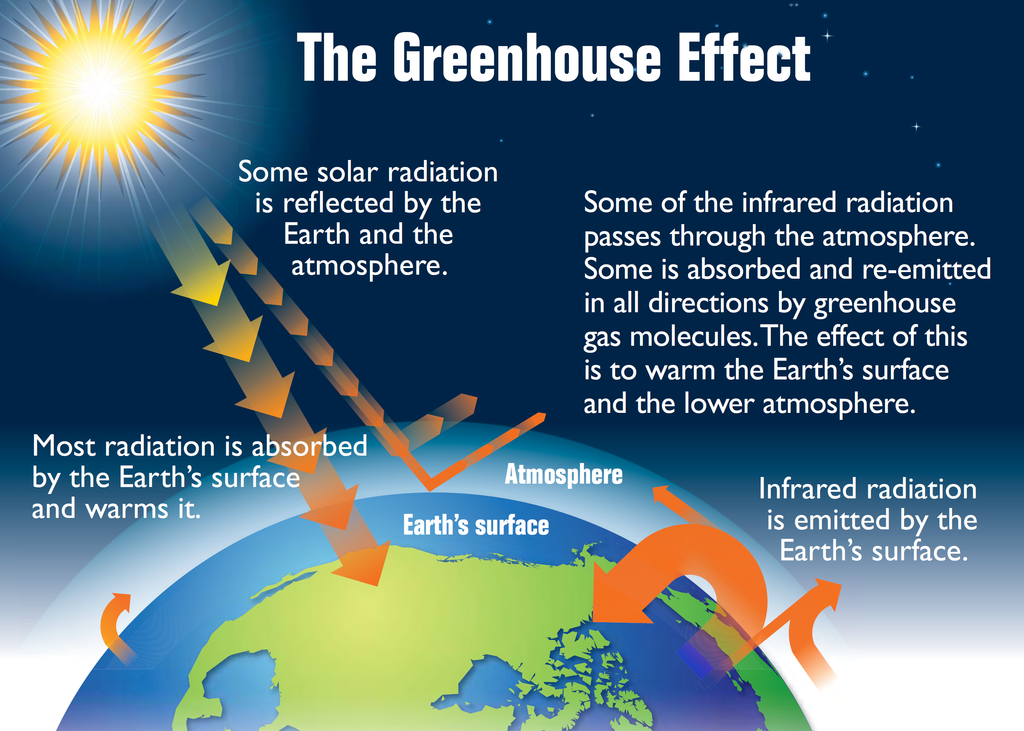11 Dec 2024

Tired Earth
By The Editorial Board

A definition of the Greenhouse Effect
“When we burn organic (i.e. carbon-containing) fuels, or organic matter decomposes, carbon dioxide is released into the air. It is transparent to incoming solar radiation, but opaque to some wavelengths of heat radiated from the warmed surface of the Earth, and so traps heat, leading eventually to a warming of the lower atmosphere”1.
This is known as the greenhouse effect, as in principle, the atmosphere behaves in a similar manner to a garden greenhouse – it allows sunlight to penetrate, but heat is trapped within the atmosphere in the same way that it is trapped within the glass walls of a greenhouse. This trapped hot air is causing the earth to heat up, resulting in global warming, and ultimately climate change.
Snow capped mountains and ice sheets reflect radiation away from the Earth – a phenomenon that is known as the albedo effect. This helps reduce the amount of heat absorbed by the Earth, and therefore plays a vital role in keeping the Earth cool.
When ice sheets melt, it exposes dark rock or vegetation that doesn’t have the same reflective properties as ice, and thus tends to absorb rather than reflect heat.
As sea ice and ice covering the Tundra melts, it exposes methane hydrates – ice crystals that contain pockets of methane locked within. When methane hydrates are exposed to warm air or warm water they begin to melt, releasing the methane – a greenhouse gas that is more than 20 times as potent as carbon dioxide in terms of its warming effect.
Furthermore, as the atmosphere heats up, so do the oceans, which leads to more water being evaporated into the atmosphere. Consequently there is more water vapor present in the atmosphere. This not only contributes to severe weather, but because water vapor is a greenhouse gas, it also contributes to further warming. Are you beginning to understand the knock-on effects?
According to the IPCC2, because water is such an important greenhouse gas, the greenhouse effect is much larger in the humid tropics where the atmosphere has a high water content, than in the polar regions where the air is drier. Thus, when carbon dioxide is released into the atmosphere in small amounts in the polar regions where the air is drier, the effect on downward radiation is far greater than when a similar amount is released into the atmosphere in the tropics. Similarly, even a slight increase in water vapor in the upper atmosphere where the air is cold and dry, has a greater impact on the greenhouse effect that it would have when added to the lower atmosphere where the air is warm and moist.
The answer to this question is not straight forward. Clouds form as a result of water vapor accumulating in the atmosphere, and as water vapor is a greenhouse gas, we can assume that they contribute to global warming. However, clouds also have reflective properties and contribute to the albedo affect mentioned earlier by reflecting some radiation away from the Earth. So, this currently remains a riddle that scientists are hard at work trying to resolve.
source : globalwarming-facts.
Comment